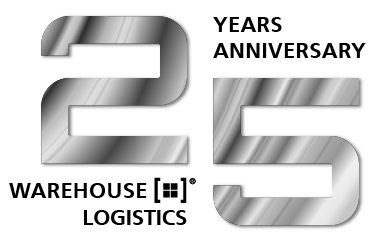News
Industry 4.0 finds its way into the warehouse
17.07.2017
PUMA, ITG, Gigaton and MAGAZINO implement joint pilot project
The future has already begun. Much has already been reported about the term »Industry 4.0« and in the meantime new technologies have found their way into almost all areas of the value chain. This is the case in logistics, as well. ITG recently started a pilot project at its Schwaig location, working together with the sports brand PUMA, the start-up MAGAZINO as technology partner, and the software manufacturer Gigaton. In the Logistics Center that ITG operates for the PUMA retail stores, an order-picking robot has been in use since May 2017.
Schwaig, July 12th 2017 – PUMA initiated the pilot project after an encounter at a trade show with a robotics manufacturer and Munich-based start-up MAGAZINO. The start-up's vision is to create the »first intelligent and decision-making warehouse in the world.« For these high ambitions to become reality, the devices must be tested in practical application in order to move the development forward with the insights gained. ITG was open to the project from the start. The project team, with members from the participating companies, has been working on this implementation since the end of July 2016.
TORU provides precise access to individual objects, not just standardized loading units like trays or boxes. The adaptive picker arms can grasp different cue-shaped objects – from a small paperback book to a shoe box or a heavy dictionary. Then, the robot can place the grasped object on its shelf and bring it directly to the shipping station.
TORU learns while picking
The hardware with conveyor technology is based on proven elements. What's unique about this system is the software, which networks the technology and the sensors. TORU involves a perception-controlled robot. Thanks to cameras, computer vision, numerous sensors, and the use of artificial intelligence, the robot can perceive and interpret its environment and make decisions on that basis. This allows not only for permanent adjustments to the warehouse topology and the use of the robot in work environments alongside people, but also lets the system to learn independently.
The »new colleague« named TORU now assists the employees of ITG. The cooperation between man and machine is ensured with numerous sensors on the robot. These sensors continuously record data about the environment. If TORU gets too close to someone, it reduces its speed and then stops its movements. The system has been inspected by the German employers' liability insurance association in order to guarantee workplace safety.
Cooperation between man and machine
A major benefit is that the robot can be used outside of working hour models, for the late shift or night shift for example. TORU doesn't even need the warehouse lighting, as it has integrated headlights and can light its work environment itself. What is particularly innovative and a real bonus from this concept is the agile system design: the robot can be used in other departments without additional expense, and automatically familiarizes itself with them. This flexibility provides great added value, which has made a positive impression on PUMA and ITG.
One of the goals of this pilot project is to test the robot in practical application. In this process, questions about behavior with people in the work environment, stability and consistency in daily use, and the maturity of the technology in real world conditions will be answered. The partners would also like to see just how efficient the robot can be. Different scenarios are presented for this purpose in order to gain insight on what the ideal environment for the technology looks like.
Live operation with TORU is expected to start in September, once the robot technology is linked with the LogoS external warehouse management system from Gigaton, and the first positive tests and a brief familiarization period are completed. By then the employees will have surely thought of a unique name for their new coworkers.
